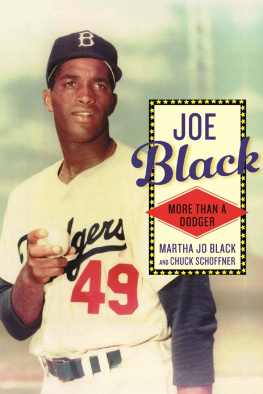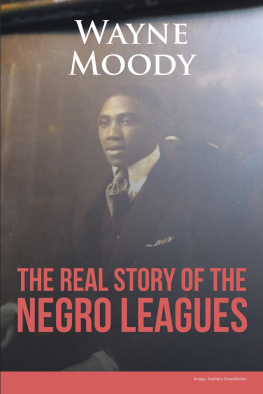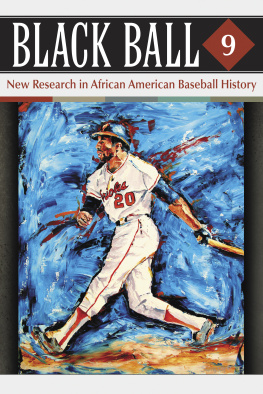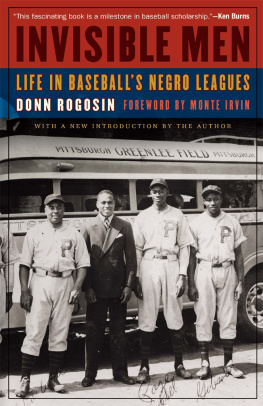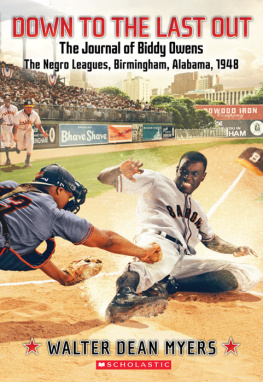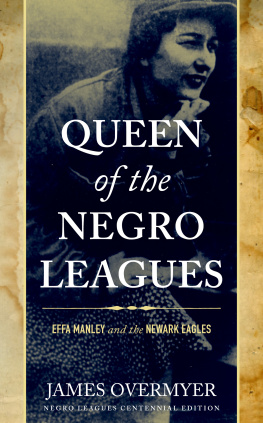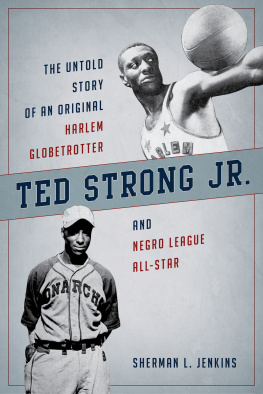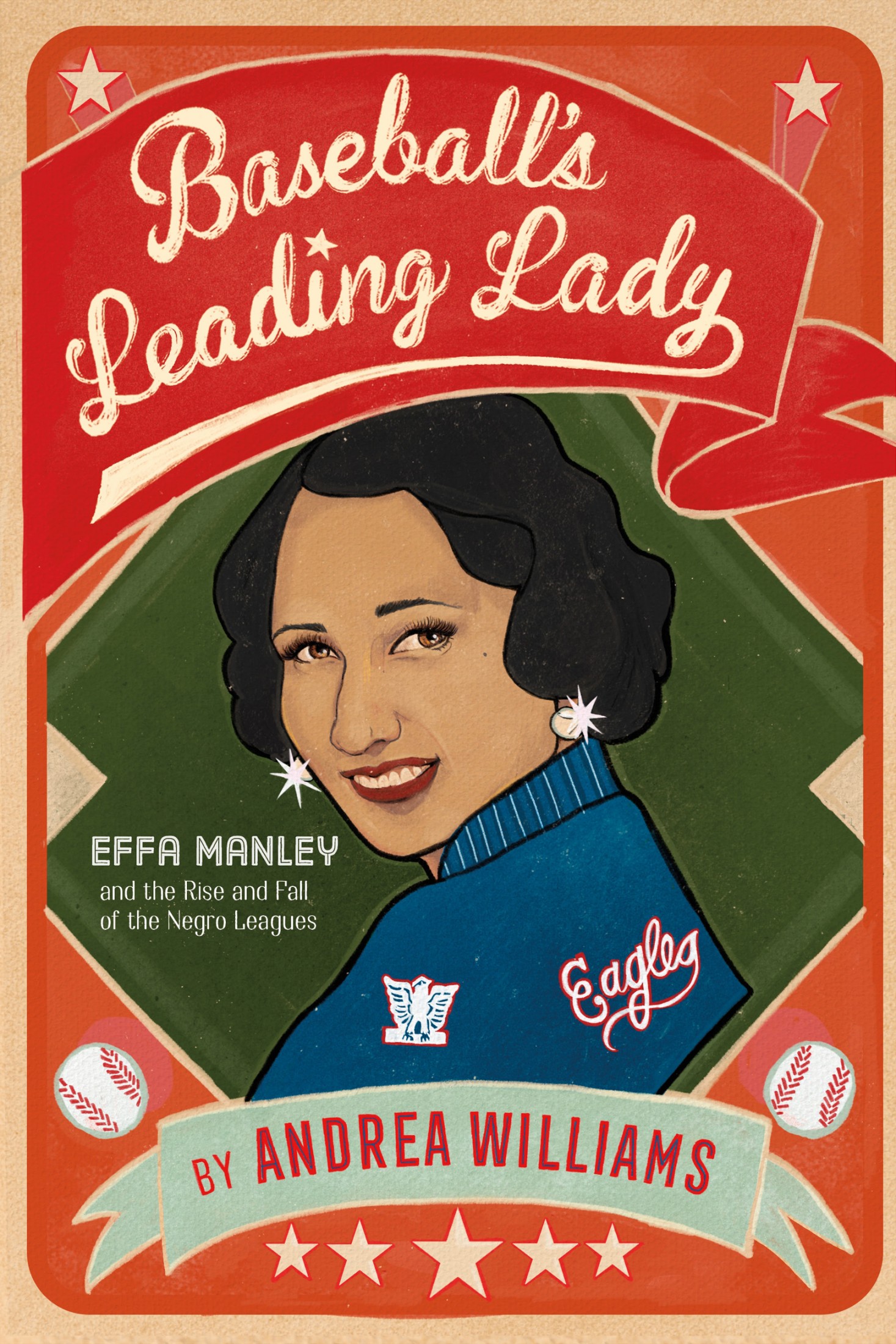The author and publisher have provided this e-book to you for your personal use only. You may not make this e-book publicly available in any way. Copyright infringement is against the law. If you believe the copy of this e-book you are reading infringes on the authors copyright, please notify the publisher at: us.macmillanusa.com/piracy.
For Alyssa and Alana. May you always see clearly and speak loudly. A.W.
It was 1946 in New Yorkearly fall, September. It was that electric season that bridged the smothering heat of summer and the iciness of winter with brisk mornings and cooler nights, the time when kids were settling into their school-day routines and the baseball games played on diamonds across the country mattered most.
New York was the epicenter of Americas pastime then, and there were enough teams around town for every fan to choose their favorite. Some followed the New York Giants and their right fielder, Mel Ott, the pure power hitter who led his team in home runs for eighteen consecutive seasonsa record thats yet to be broken. Others flocked to the legendary Ebbets Field to see the Brooklyn Dodgers take on the St. Louis Cardinals, the Chicago Cubs, and the crosstown Giants, too. Others, still, pledged allegiance to the New York Yankees, with their pinstripes signifying a team that was all business, all the time, and their ten World Series championships from 1923 to 1943 the indisputable proof.
But on September 17, 1946, the biggest, most important baseball game in New York didnt feature Yogi Berra or the Babe. That evening, it was Black baseballs finest on display. The Negro American Leagues Kansas City Monarchs and the Negro National Leagues Newark Eagles were facing off at the Polo Grounds in Upper Manhattan for Game 1 of the Negro World Series. So while the Polo Grounds usually featured the hometown Giants, Ott and his teammates had given way to the Monarchs Satchel Paige and Hilton Smith, along with the Eagles Larry Doby and Monte Irvin.
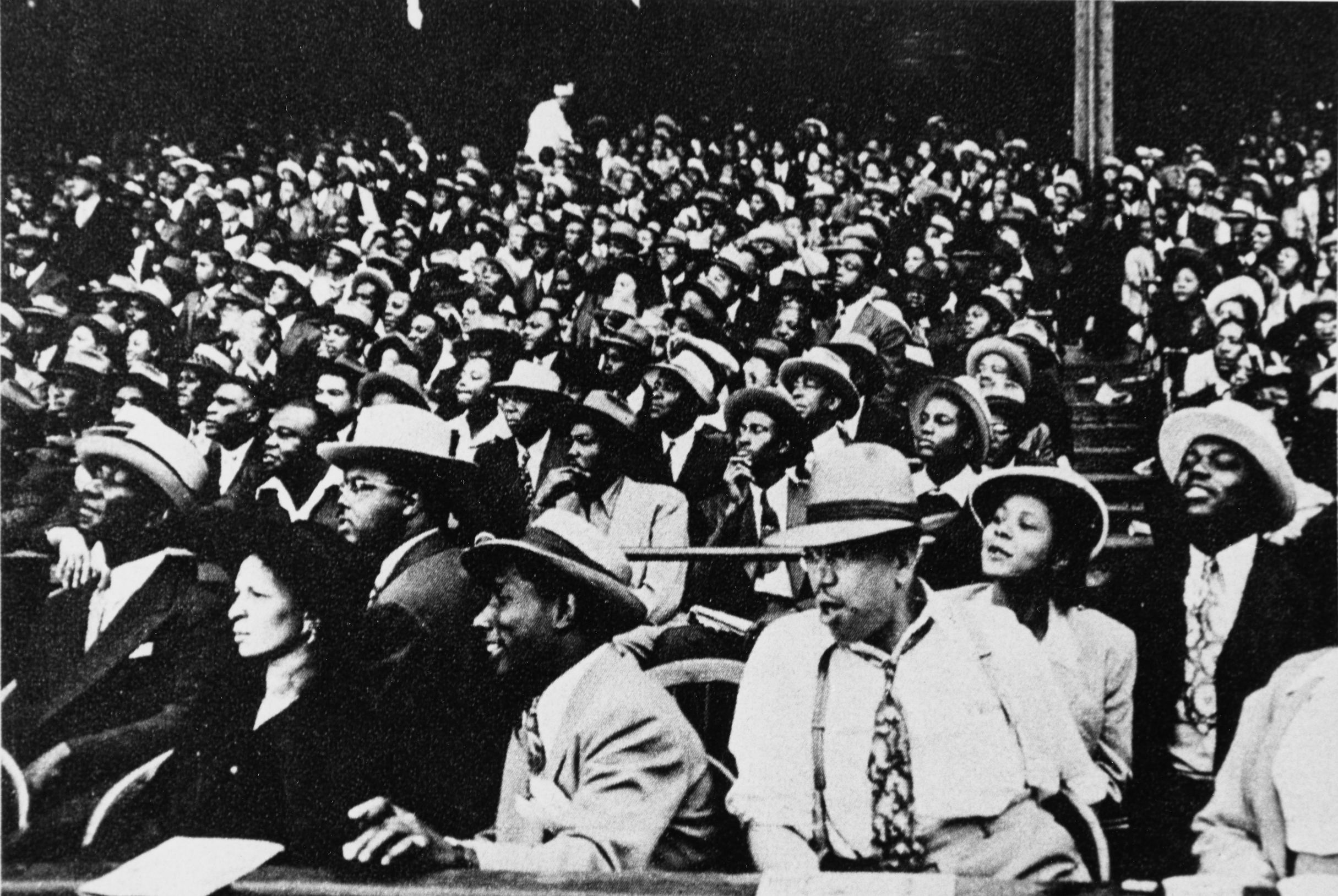
On September 17, 1946, more than nineteen thousand fans gathered in New Yorks Polo Grounds stadium to see the Newark Eagles face off against the Kansas City Monarchs in Game 1 of the Negro World Series.
From her seat in the owners box, Effa Manley surveyed the crowd of Black and brown fans. The men wore three-piece suits, the women, veiled fascinators and wide-brimmed hats. All were clad in their Sunday best, and Effa was dressed to the nines, too. Black baseball games were always an occasionthe rare family-friendly event on the social calendarbut this game was even more special. Through twelve seasons of uncertainty, on and off the field, this moment was Effas wildest dreams come true.
Effa turned her attention to the diamond, to her Eagles scattered around the dirt and grass during warm-ups. They were a glorious-looking crew, classy and handsome, and they would look even better during Game 2 at Ruppert Stadium. Then theyd be clad in their bright white uniforms so new that the flannel of the jerseys would still be crisp and firm against their skin.
Abe, Effas husband and co-owner of the Eagles, had been surprised when she decided to purchase the uniforms for a staggering $700. Normally, player uniforms had to be unraveling at the seams before Effa would consider replacing them; even then, it was the catcher and pitcher, maybe the infield basemen, who got outfitted. The fans could see them more clearly, she reasoned, so they needed to be the best-dressed on the field. Black baseball may have been operating on a shoestring compared with the white pro teams, but Effa saw no reason for her team to look pennilesseven if it sometimes was.
No, there would be no hardship on display during the 46 Negro World Series. If anything, there would be celebrationof Black baseball, of Black community, of new Black money that had come streaming into the community via the war and accompanying hiring sprees. Effa and her Eagles had experienced many lean years, but these prosperous times had made it all worth it.
There were more than nineteen thousand people milling about the stadium that September night, and Effa was thankful for every one. So many of them had been around for years, supporting the team since its inaugural season in 1935, back when a Negro World Series was unfathomable. Now they were there to witness history.
Back on the field, Leon Day, the Eagles star pitcher, tossed balls to catcher Biz Mackey while Effa watched silently. A Newark victory was closeso close that Effa could feel it. Yet even as her chest swelled with pride and possibility, she couldnt shake the worry that gathered in the corners of her mind.
No matter the jubilation that surrounded her, Effa knew that the future of the Eaglesthe future of all of Negro Leagues Baseball, in factwas in jeopardy.
By the time that first game of the 1946 Negro World Series rolled around, Effa had already spent years on the battlefield for Black baseball. Shed confronted Branch Rickey when he signed Jackie Robinson without paying the Kansas City Monarchs for his contractand that was before he had the nerve to pilfer one of her own Eagles players. Shed argued with other owners of Black baseball teams, pleading with them to tighten up their business affairs for respectabilitys sake. Shed even challenged Black sportswriters who advocated for baseballs integration without considering the real, lasting effect it would have on the Negro Leagues.
Effa loved baseball, to be sure, but it was more than just the crack of the bat and the thrill of triumph that drew her to the game. She saw the Negro Leagues as a vehicle to transport the Black community to a position of equality in American society, to provide jobs and financial stability where they were sorely lacking, and to give Black boys and girls regular opportunities to witness victory when so much of their lives was mired in defeat.
That Effa was a successful team owner and league executive in the highly competitive world of professional baseball is laudable. That she was successful as a Black woman in the 1930s and 40s, when gender discrimination hung like a heavy harness around the necks of all women, is extraordinary. Still, Effa didnt draw attention to her otherness; she didnt flaunt her pioneering efforts in meetings or press conferences. Most of the time, if asked, she credited her husband for her achievements. That was the socially acceptable way to handle things back then, to be sure, but Effa also had other reasons for shifting attention away from her groundbreaking presence in professional baseball, even when others chose to focus on it. Namely, she was busy.
Effa had games to win.
Eagles ace Leon Day was shaky from the very start of Game 1 between Newark and Kansas City, allowing the Monarchs to score their first run in the top of the opening inning. And despite having five players who hit above .300 during the regular season, the Eagles couldnt counter with a run of their own in the bottom of the first. Meanwhile, Hilton Smith, Kansas Citys starting pitcher, was near perfect. He held the Eagles scoreless for five innings, but Smiths reliable arm began to waver after the fifth inning, and after walking Larry Doby to lead off the sixth, his teammate, the legendary Satchel Paige, was brought in for relief. It was like trading a tornado for a hurricane.


